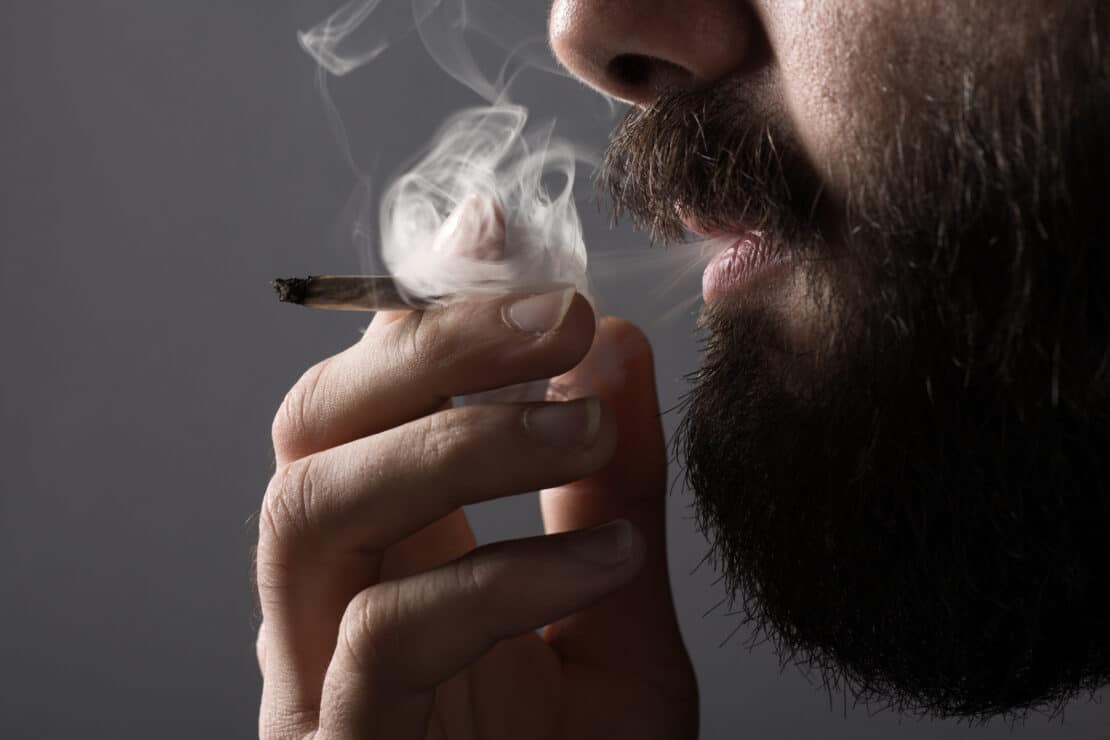Big Pharma knows that every year millions of Americans make a New Year’s resolution to quit smoking.
That’s why you see so many TV commercials this time of year for smoking-cessation drugs. There’s only one problem…
The drugs don’t work.
A major study by researchers at the University of California, San Diego School of Medicine looked at 10 years of smoking data collected by the U.S. Census. It found that smoking-cessation medications—when used on their own without other anti-smoking aids—don’t improve your chances of kicking the habit.[i]
Medical researcher Eric Leas was a coauthor of the study. He concluded: “We found no evidence that the pharmaceutical cessation aids that we assessed improved the chances of successfully quitting.”[ii]
Leas specifically looked at the two non-nicotine drugs approved by the FDA for quitting smoking. They are Chantix and Zyban.
Chantix (varenicline tartrate) is the more popular of the two. It acts on sites in the brain affected by nicotine. The drug reduces the rewarding effects of nicotine. This should make it easier to quit by making smoking less satisfying.
Zyban (buproprion hydrochloride) is an antidepressant. It contains the same active ingredient as Wellbutrin. Although the FDA approved it for smoking cessation, its maker GlaxoSmithKline has never explained the mechanism behind how it is supposed to help people quit.[iii]
Drug company claims that these drugs are effective are not flat out lies…but they are misleading.
It’s not as simple as just popping a pill. People using the medications often do successfully quit…if they also undergo behavioral counseling. But researchers point out that less than 2% of the people who take smoking-cessation drugs also get counseling.
“This is a recipe for relapse to smoking,” the researchers concluded.[iv]
Stop-Smoking Drugs Can Cause Serious Health Problems
Not only do the drugs not help unless they are used in combination with counseling, but they can cause serious side effects.
Chantix is linked to depression, suicidal thoughts, seizures, sleepwalking, and allergies. Zyban side effects include seizures, insomnia, nausea, headaches, chest pain, and high blood pressure.[v] [vi]
The Best Way to Stop Smoking
Dr. John P. Pierce is a professor emeritus in the Department of Family Medicine and Public Health at UC San Diego School of Medicine. He said there is one strategy that works better than all others to quit smoking.
“Evidence is pointing to an important role of behavioral counseling,” said Professor Pierce. “If the (drugs) were approved with counseling, we may have better success rates.”
Behavioral therapy is a way to “unlearn” habitual behaviors such as smoking. It involves discussions of thoughts and feelings when the patient practices the behavior. These discussions can be with professional counselors or even friends or spouses.
An English study by University of Oxford researchers found that behavioral counselling increases the chances of quitting by between 40% and 60%.[vii]
The study looked at several forms of counseling. They included individual in-person sessions, telephone counseling, group sessions, and written advice. All were found to be effective, although individual counseling worked best.
There are two easy ways to access behavioral counseling:[viii]
1-800-QUIT-NOW (1-800-784-8669). Calling this toll-free number will connect you directly to your state’s quit line. All states have trained coaches who provide phone counseling.
1-877-44U-QUIT (1-877-448-7848) This National Cancer Institute program offers referrals to trained counselors.
If your New Year’s resolution is to quit smoking, get the help you need to take control of your health for good.
Editor’s Note: If you’re worried about cancer, you need to read our monthly journal Independent Healing. It’s your best source for unbiased, evidence-based medical advice.
Discover The Cancer Kill Code. It’s a secret natural trigger that detonates cancer’s self-destruct button. Get all the details HERE.
Related Articles
One Simple Strategy Increases Your Chances of Quitting Smoking by 583%
Vaping Doesn’t Help People Quit Smoking
Red Wine Protects Against Some of Smoking’s Ill Effects
[i] http://ucsdnews.ucsd.edu/pressrelease/study_medications_alone_dont_help_smokers_quit
[ii] https://www.linkedin.com/in/eric-leas
[iii] https://www.fda.gov/ForConsumers/ConsumerUpdates/ucm198176.htm
[iv] http://ucsdnews.ucsd.edu/pressrelease/study_medications_alone_dont_help_smokers_quit
[v] https://www.medicalnewstoday.com/kc/wellbutrin-bupropion-uses-side-effects-precautions-264418
[vi] https://www.chantix.com/?%3Fsource=google&HBX_PK=s_chantix&o=23119569%7C166373525%7C0&skwid=43700019815593342&src_id=Chantix_Paid%20Search_Branded_General_20173103
[vii] http://www.cochrane.org/CD001292/TOBACCO_does-individually-delivered-counselling-help-people-stop-smoking
[viii] https://www.quit.com/maintain/quit-smoking-hotlines.html

